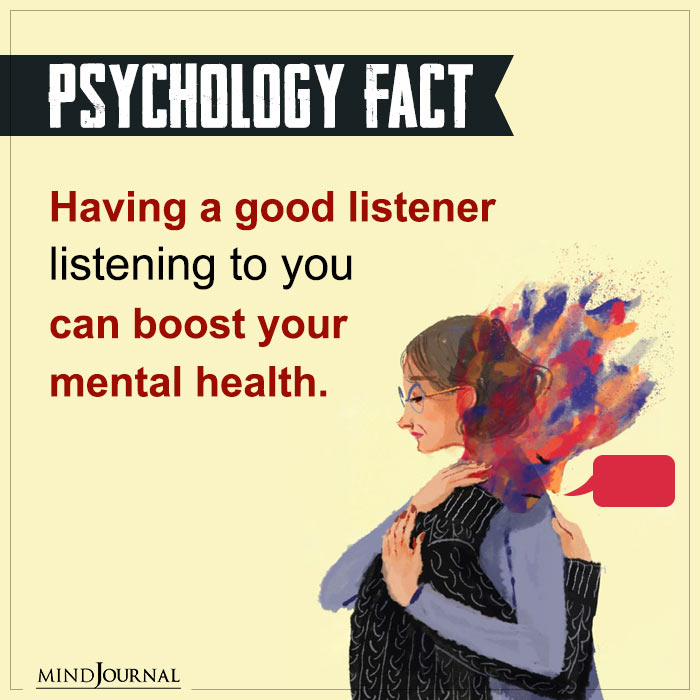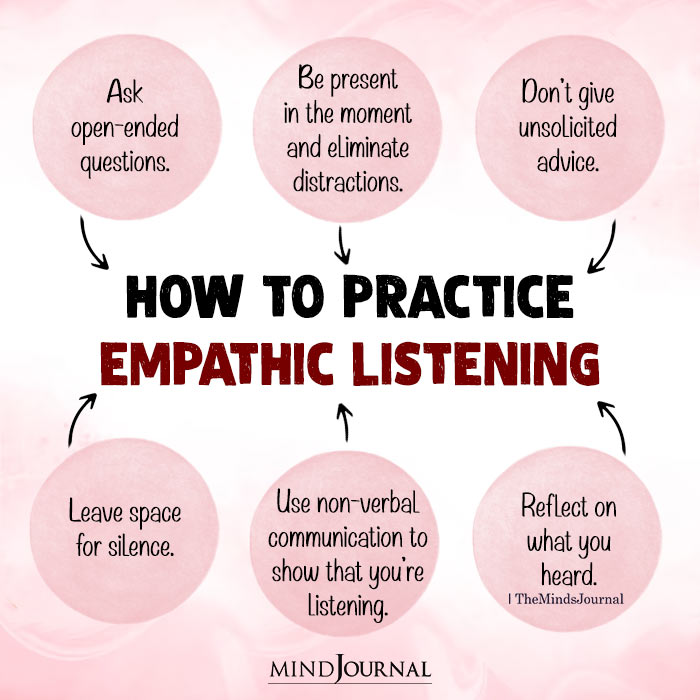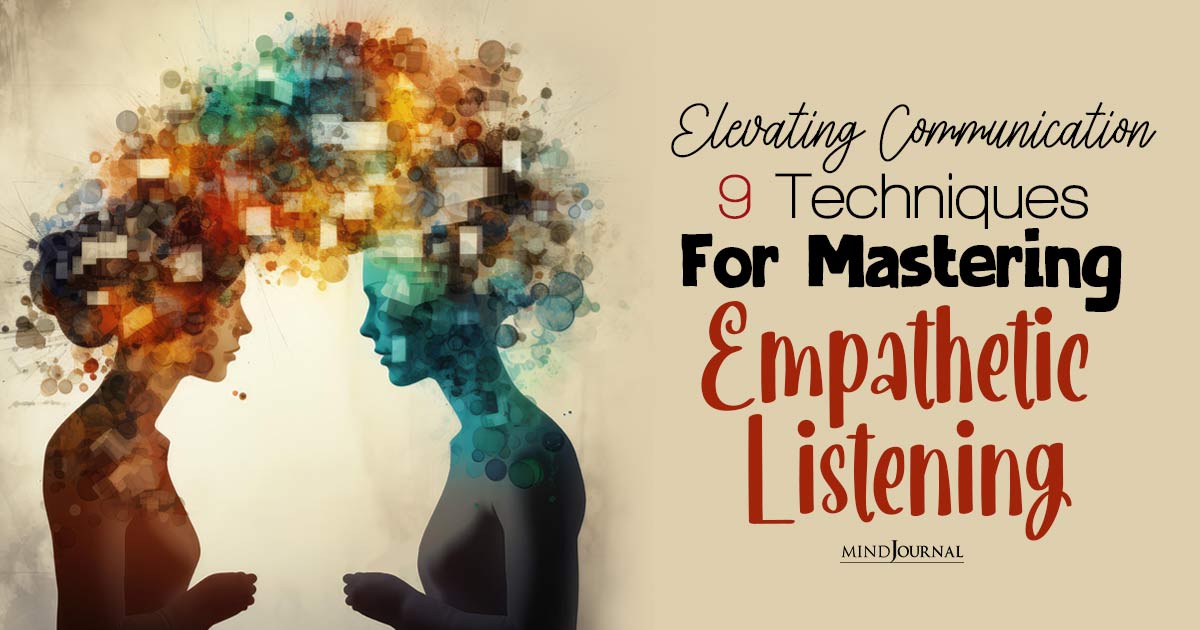Have you ever had a conversation with someone where you felt truly heard and understood? A conversation where the other person seemed to be fully present, not just hearing your words, but also grasping the emotions and meaning behind them? This remarkable experience is a result of empathetic listening. What is empathetic listening, you ask?
It is a skill that goes beyond the surface to foster genuine connection and understanding. Let us explore what is empathetic listening, active listening vs empathic listening, benefits of empathic listening, skills of empathetic listeners and empathic listening techniques. We will also share some valueable tips for empathic listening.
So, grab a cup of coffee, settle into a comfortable spot, and let’s embark on a journey to explore the transformative power of empathetic listening.
What is Empathetic Listening?
Empathetic listening is a communication technique that involves fully understanding and sharing the feelings, thoughts, and experiences of another person. It goes beyond simply hearing the words being spoken and encompasses a deep sense of empathy and compassion.

When engaging in empathetic listening, we strive to create a safe and non-judgmental space where individuals can freely express themselves, knowing that they are genuinely being heard.
Related: 3 Keys To Developing Empathy: How To Be The Best Listener Ever
Understanding the Speaker’s Perspective
Empathetic listening requires us to step into the shoes of the speaker and see the world from their perspective. It involves suspending our own biases, assumptions, and personal experiences, and embracing a genuine curiosity to understand the speaker’s reality.
By actively seeking to understand their unique context, beliefs, and emotions, we can develop a richer understanding of their message and forge a deeper connection.
Listening Beyond Words
Words often fail to capture the entirety of human experience. Empathetic listening involves reading between the lines and listening for the unspoken. By paying attention to tone of voice, body language, and non-verbal cues, we can gain insights into the speaker’s emotions, needs, and desires. This is one of the most important tips for empathic listening.
For example, a friend may say they’re “fine,” but their hunched shoulders and downcast eyes may reveal their true feelings of sadness or distress. By attuning ourselves to these subtle cues, we can respond with empathy and provide the support and understanding needed.
Now that we know what is empathetic listening, let’s find out how it differs from active listening.
Active Listening vs Empathic Listening
So what is active listening vs empathic listening? While active listening and empathetic listening share similarities, they differ in their depth of understanding and emotional connection.
Active listening involves focusing on the speaker, paying attention to verbal and non-verbal cues, and providing feedback to show understanding.
On the other hand, empathetic listening takes active listening a step further by immersing ourselves in the speaker’s emotional experience, truly understanding their point of view, and validating their feelings without imposing our own.
Empathetic listening requires us to connect on an emotional level, embracing vulnerability and fostering a sense of trust and respect. That is what active listening vs empathic listening is.
Related: 5 Ways How Music Increases Empathy In Listeners
Impact of Empathetic Listening
The impact of empathetic listening extends far beyond individual conversations. It has the power to transform workplaces, communities, and even society at large. By embracing empathetic listening, we can break down barriers, foster inclusivity, and promote empathy on a broader scale.
It allows us to bridge differences, find common ground, and work towards shared goals. In a world that often feels divided, empathetic listening serves as a catalyst for compassion, understanding, and positive change.

Benefits of Empathic Listening
Knowing what is empathetic listening is not enough. We must also explore its advantages. Here are some of the most common benefits of empathic listening –
1. Enhanced Understanding
Empathic listening allows us to gain a deeper understanding of others’ perspectives, experiences, and emotions. By actively engaging in their stories, we can uncover insights that we might have otherwise missed. This understanding fosters empathy, compassion, and a broader worldview.
2. Strengthened Relationships
Empathic listening builds trust and strengthens relationships. When we truly listen and understand others, they feel valued, respected, and cared for. This cultivates a sense of connection and fosters deeper bonds with friends, family, colleagues, and even strangers.
3. Conflict Resolution
Empathic listening plays a crucial role in resolving conflicts. By attentively listening to both sides, without judgment or bias, we can help individuals feel heard and acknowledged.
This creates a space for open dialogue and collaborative problem-solving, leading to mutually satisfactory resolutions. This is one of the major benefits of empathic listening.
4. Emotional Support
Empathic listening provides much-needed emotional support. When someone is going through a difficult time, being heard and understood can be incredibly comforting. It allows individuals to express their emotions, release pent-up feelings, and find solace in the presence of a compassionate listener.
5. Personal Growth
Engaging in empathic listening not only benefits others but also contributes to our personal growth. By actively seeking to understand different perspectives, we expand our own knowledge, challenge our assumptions, and develop a greater sense of empathy and compassion.
It broadens our horizons and promotes self-reflection. This is one of the most important benefits of empathic listening.
Related: How To Be A Better Listener With The 5 Levels of Listening
Skills of Empathetic Listeners
While we have gained some idea about what is empathetic listening, we still need to understand what makes someone an empathic listener.
Skills of empathetic listeners include a wide range of abilities that enable them to listen actively, reflect emotions, and demonstrate understanding. Here are some common skills of empathetic listeners –
1. Emotional Intelligence
Empathetic listeners possess emotional intelligence, which involves being aware of and understanding their own emotions as well as those of others. They can accurately perceive and interpret emotions, allowing them to respond with empathy and compassion.
2. Non-Verbal Communication
Empathetic listeners are attuned to non-verbal cues, such as facial expressions, body language, and tone of voice.
They can pick up on subtle signals and use them to gain a deeper understanding of the speaker’s emotions and experiences. Observing body language is one of the crucial tips for empathic listening.
3. Patience and Open-Mindedness
Empathetic listeners exhibit patience and open-mindedness. They are willing to listen and understand different perspectives without rushing to judgment. They create a safe space for the speaker to express themselves fully and authentically.
4. Curiosity and Genuine Interest
Empathetic listeners approach conversations with curiosity and a genuine interest in others. They ask thoughtful questions and actively seek to understand the speaker’s experiences, thoughts, and emotions. They value learning from others’ perspectives.
5. Self-Awareness
Empathetic listeners are self-aware and mindful of their own biases, assumptions, and emotions. They recognize how their own experiences and beliefs may influence their listening and actively work to set them aside to fully engage with the speaker. This is one of the important tips for empathic listening.
6. Flexibility and Adaptability
Empathetic listeners are flexible and adaptable in their approach. They can adjust their listening style and techniques based on the needs of the speaker and the context of the conversation. They understand that each individual is unique and may require different forms of support.
7. Empathy and Compassion
Empathetic listeners genuinely care about others’ well-being and demonstrate empathy and compassion. They strive to create a safe and non-judgmental space where individuals feel heard, understood, and supported.
By cultivating these skills and incorporating them into our interactions, we can become more empathetic listeners, fostering deeper connections, understanding, and compassion in our relationships and communities.
Related: How To Be A Better Listener: 7 Ways To Listen

Empathic Listening Techniques
Now let’s shift our focus on what is empathetic listening technique? Empathic listening techniques involve a number of different strategies that help to show understanding and create a supportive and empathetic environment for effective communication and connection. Here are some helpful empathic listening techniques –
1. Active Engagement
Engage fully in the conversation by maintaining eye contact, nodding occasionally, and using verbal cues such as “I see” or “Tell me more.” Show genuine interest and curiosity in what the speaker is saying.
2. Paraphrasing
Summarize and restate the speaker’s message in your own words. This demonstrates that you are actively listening and helps clarify any misunderstandings. For example, you could say, “If I understand correctly, you’re feeling frustrated because…”
3. Reflecting Feelings
Acknowledge and validate the speaker’s emotions. Reflect back the feelings they are expressing, such as joy, sadness, or anger. This shows empathy and creates a safe space for emotional expression. For instance, you might say, “It sounds like you’re really excited and passionate about this project.”
4. Open-Ended Questions
Ask open-ended questions to encourage the speaker to elaborate and share more. These questions cannot be answered with a simple “yes” or “no” and promote deeper exploration of thoughts and emotions. Examples include, “How did that experience make you feel?” or “What are your concerns about this situation?”
5. Non-Verbal Cues
Pay attention to non-verbal cues, such as facial expressions, body language, and tone of voice. These cues often provide valuable insights into the speaker’s emotions and underlying messages. Respond appropriately to these cues to show your empathy and understanding.
6. Avoid Interruptions
Allow the speaker to express themselves fully without interrupting. Interrupting can disrupt the flow of their thoughts and hinder their ability to communicate effectively. Practice patience and give them the space they need to share their experiences.
7. Practice Mindfulness
Stay fully present in the conversation and avoid distractions. Be mindful of your own thoughts and judgments, setting them aside to focus on the speaker’s words and emotions. This level of attentiveness demonstrates respect and genuine interest.
8. Suspend Judgment
Avoid making assumptions or passing judgment on the speaker’s experiences, opinions, or emotions. Embrace a non-judgmental attitude and approach the conversation with an open mind. This allows the speaker to feel safe and encourages them to share more authentically.
9. Show Empathy
Express empathy and compassion through your words and actions. Let the speaker know that you understand and care about their experiences. Use phrases such as “I can imagine that must have been challenging” or “I appreciate your honesty and vulnerability.”
By incorporating these empathic listening techniques into our conversations, we can cultivate deeper connections, foster understanding, and create a more compassionate and empathetic world.
Related: 44 Empathy Statements That Will Make You The Greatest Listener
Takeaway
So what is empathetic listening? Empathetic listening is more than just a communication skill; it is a profound act of empathy and compassion. By creating a safe and non-judgmental space, understanding the speaker’s perspective, and listening beyond words, we can forge deep connections and cultivate meaningful relationships.
Empathetic listening has the power to transform our interactions, nurture empathy, and foster a more compassionate world. So, let’s embark on this journey together, embracing the power of empathetic listening and unlocking the potential for deeper connections and understanding.
Frequently Asked Questions (FAQs):
What is the meaning of empathic listening?
Empathic listening is the practice of actively and genuinely understanding another person’s feelings, thoughts, and perspectives during a conversation.
What are the 4 stages of empathetic listening?
The four stages of empathetic listening are receiving, interpreting, responding, and confirming, involving attentive listening, comprehension, reflection, and validation.
What are the three tips to empathic listening?
Three key tips for empathic listening include active engagement, non-verbal empathy cues, and validating the speaker’s emotions, fostering understanding and connection.










Leave a Reply